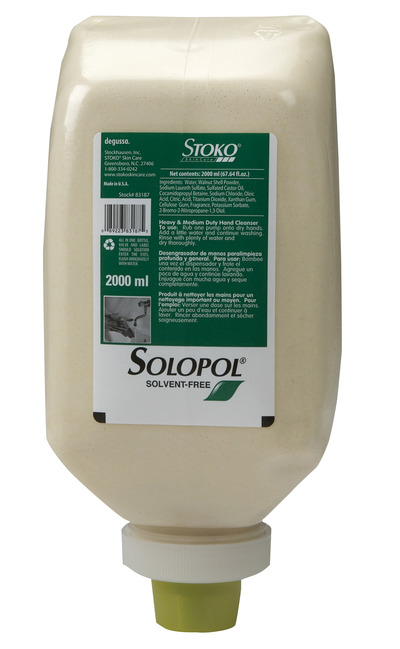Skin deep for workers
Occupational contact dermatitis is a common work-related disease costing workplaces tens of millions of dollars every year due to lower productivity and lost work days.
According to SafeWork Australia reports, occupational contact dermatitis is accountable for 75% of skin conditions in the workplace and occurs in workers who are exposed to irritating or allergenic substances or specific physical factors.
Common among nurses, food handlers, hairdressers, motor mechanics and construction workers, occupational contact dermatitis is estimated to cost the economy more than $33 million annually.
Terry Houlihan, managing director of workplace products supplier and distributor Pryme Australia, said occupational contact dermatitis could be prevented.
“Occupational dermatitis is an ongoing concern that is largely preventable in every workplace and is often overlooked due to a lack of awareness by both employers and employees,” he said.
“Today workers are exposed to harsher, more powerful industrial chemicals with oils and resins. It’s important that workers are educated to ensure their safety and ongoing productivity.
“It’s as simple as implementing correct, step-by-step cleaning procedures and wearing personal protective equipment when needed.”
Houlihan said occupational contact dermatitis was primarily caused by the cumulative effect of substances such as water, soaps, detergents and solvents on the skin.
“The outermost layer of the skin is slightly acidic and acts as a barrier to prevent certain allergens and chemicals from penetrating the skin,” he said.
“Excessively washing our hands with these chemicals can destroy this acidity and removes the essential oils on the surface of the skin, compromising the skin’s natural defence mechanism.
“The skin can become dry and irritated and an inflammatory reaction can occur. Damaging the barrier layers can increase the risk of infection and make the skin more susceptible to further mechanical and chemical injury.
“We advise using products that are compatible with all skin types and can clean and condition the skin. Stoko skincare provides a three-step skincare system (before, during and after work) with a range of products designed to be convenient and safe in accessible packaging. These include wipes, mounted pump packs and tubes for workers. Stoko’s skincare products are formulated to be hazard-specific for use in a variety of industries. The brand’s conditioners work to replace lost oils and moisture and protect the skin’s natural barrier.”
Houlihan said occupational skin problems were becoming increasingly prevalent in mechanics due to contact with oil, grease, solvents and degreasing agents.
“Travabon by Stoko is a product particularly designed with an exclusive suspension formula to support the skin when working with harsh chemicals, fuels, metal dusts, inks and more,” Houlihan said.

“Conditions such as dermatitis, hand and nail infections, overhydrated skin and dry skin can all be prevented by taking the appropriate precautionary measures.
“Something as simple as following a consistent skincare routine or using personal protective equipment when required is all it takes to ensure workers remain productive and the occurrence of occupational contact dermatitis is eliminated in the workplace.”
New model Code of Practice published for managing silica dust risks
A new model Code of Practice for managing risks of respirable crystalline silica in the workplace...
SafeWork NSW inspectors to don body-worn video
To deter violence or aggression against SafeWork NSW inspectors, the NSW Government has commenced...
Oz-based PIP completes Honeywell PPE acquisition
Australian-based company Protective Industrial Products, Inc. has completed its acquisition of...








